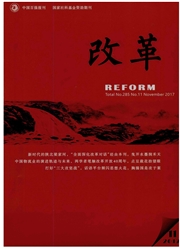

 中文摘要:
中文摘要:
采用我国省际宏观面板数据对人口年龄结构与居民消费率的关系进行的实证研究表明,本期消费率与滞后一期的消费率在1%的水平上显著正相关;老年人数量的增多会降低社会整体消费水平;少儿抚养比与消费水平正相关,老年抚养比与消费水平负相关。对人口年龄结构对城镇居民和农村居民八大类消费支出的影响程度的研究表明,人口年龄结构变动会对消费结构产生影响,且对城镇居民消费结构的影响普遍大于对农村居民消费结构的影响。我国应在控制人口数量和应对老龄化程度之间寻找平衡点,适当延迟退休年龄,建立覆盖面更广的社会保障制度。
 英文摘要:
英文摘要:
Using the provincial panel data of China, empirical study of the effects of population age structure on household consumption rate showed that the current consumption rate and lagged consumption is significantly positive correlated at the 1% level. Population aging reduces the overall level of consumption, while child dependency ratio is positively correlated with the consumption level; the elderly dependency ratio is negatively correlated with the consumption level. We then analyzed the impacts of the population age structure on the eight categories of consumer spending of urban and rural residents, we found that the changes of population age structure have an impact on consumption structure, and the impact on urban residents' consumption structure is generally greater than the impact on rural residents. China should find a balance point between the population control and the dealing with population aging problem. Suggestions include postponing the retirement age and establishing a social security system with broader coverage.
 同期刊论文项目
同期刊论文项目
 同项目期刊论文
同项目期刊论文
 期刊信息
期刊信息
